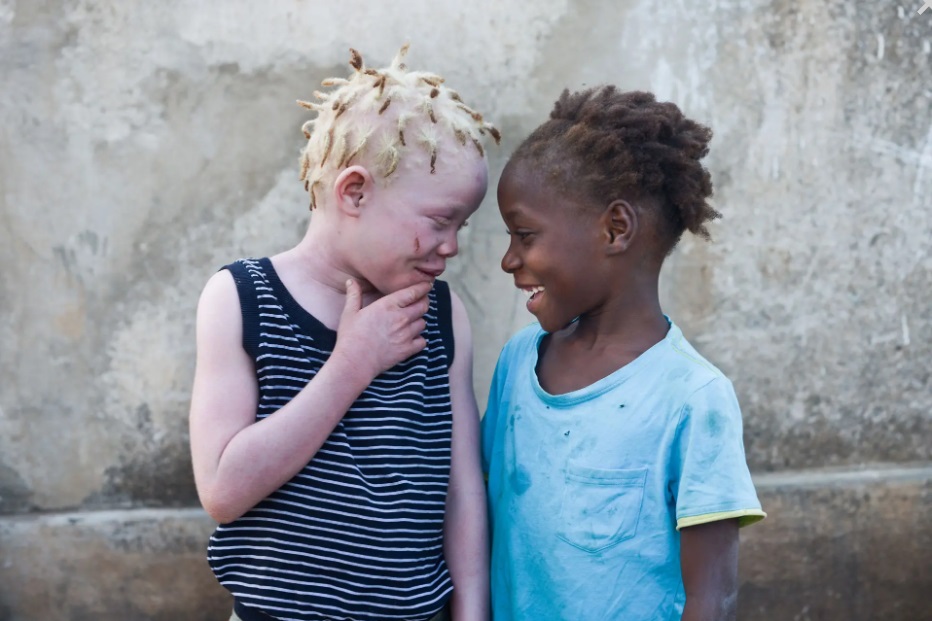By Samer Muscati | Associate Director, Disability Rights Division | Human Rights Watch
Featured Photo: The mural is based on this photograph of Josina (left) with her niece, Luisa. “She is my best friend,” said Josina. “She is always asking if I’m ok, she helps me read after school and she looks after me.” © 2018 Samer Muscati for Human Rights Watch.
As the start of the school year approaches and my daughters prepare to return to class, I’m reminded of the children with albinism that I met in Mozambique and the formidable barriers they continue to face in their pursuit of an education.
One story that resonated deeply with me is that of Josina. Her journey exemplifies both the resilience of children with albinism and the collective effort required to create change.
Albinism, a genetic condition characterized by reduced melanin production in the skin, eyes, and hair, exposes individuals to a world of prejudice, discrimination, and even violence. In Mozambique’s Tete province, where Josina lives, fear and superstitions about people with albinism, including that their body parts possess magical properties, has led to abductions, mutilations, even killings.
Despite the harrowing challenges, there is hope. Azemap, a volunteer organization dedicated to supporting people with albinism, partnered with Human Rights Watch to create evocative murals in Tete province, spreading a message of unity and acceptance. These murals, which prominently feature Josina and her best friend Luisa, serve as powerful reminders that people with albinism are equal members of society and are entitled to the same opportunities as their peers.
Josina’s life has also been transformed by a simple pair of prescription glasses donated by Azemap. They have enabled her to engage better in her studies and boosted her confidence. Josina’s story showcases the tangible impact that proper support and resources can have on a child’s education and self-esteem. Her teacher, Revina, has played an important role in Josina’s transformation and stands as an example of an educator committed to nurturing equality and human rights. With Revina’s support, Josina has overcome bullying and is thriving in her educational journey.
However, change also requires government action. Mozambique and other governments in the region should invest in sensitization programs, accessible learning materials, teacher training, and inclusive policies, while also implementing other recommendations in the African Union’s Plan of Action on Albinism. By doing so, governments and communities can create an environment where children with albinism, like Josina, can thrive.
Her story is a testament to the potential for change and the importance of ensuring every child’s right to education and inclusion. It is imperative that children with albinism receive nothing less.
